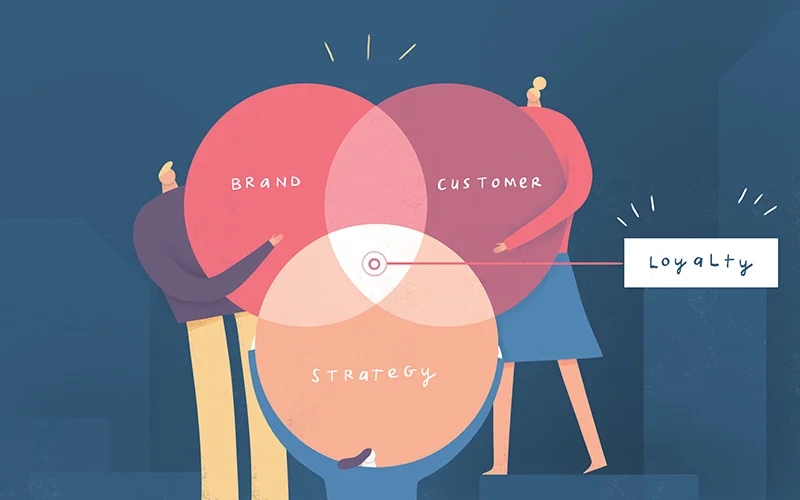-
0 Decoding the Algorithm: On Bias and the Work of SEO
- SEO Algorithms
- by Seth Pollins
- 01.21.2020
5.00 of 7 votesSEO is often presented as a collection of tricks and tips. However, the real work of matching unique browsers with unique content is all about decoding (biased) algorithms (Photo Source). An algorithm is a formula for problem-solving. From Facebook to Netflix, most organizations structure algorithms to streamline core functions. Facebook uses its algorithm, for example, to highlight specific posts for specific users. Netflix's algorithm matches users and movies. Yet algorithms determine much more than core functions. We tend to equate algorithms with "big problems." For Google, the "problem" is search--how to connect people with content. For Facebook, the "problem" is sociability--how to inspire people to engage and share. For Netflix, the problem is predicting tastes (a problem many believe Netflix has yet to solve). We also tend to equate algorithms with cold precision--pure mathematics. However, the notion of algorithm bias has attracted much attention in recent years. Even before the 2016 election, Gilad Lotan from the startup incubator Betaworks and Kelly McBride from The Poynter Institute talked "algorithm neutrality" at SXSW in Austin. McBride wrote about the subject quite elegantly on Poynter.org. Her words, over six years old, are worth returning to in light of the upcoming 2020 election: "Algorithms control the marketplace of ideas," McBride wrote. "They grant power to certain information as it flies through the digital space and takes power away from other information..." This used to be the work of gatekeepers, McBride noted, like newspaper editors--flawed human beings, obviously, biased by their own perspectives. It was hard to hold these gatekeepers accountable because their decisions were often private. However, it’s even more difficult to determine algorithm biases. Although engineers make algorithms make judgments based on mathematical principles, most of these judgments are exactly that--judgments, made by biased humans. To display this bias, Lotan noted Twitter's trending topics. In Twitter's infancy, Justin Bieber's fanatical fans, the Beliebers, helped the pop star dominate worldwide trending topics. For better or worse, Bieber was what people were talking about. But Twitter's engineers tweaked the algorithm to "normalize" the content. As Lotan said at SXSW: "They normalized content…meaning it was much harder for Justin Bieber to trend." McBride added: “Until he gets arrested in Miami and has to pee in front of a camera, and the video is then released. Then Justin Bieber will trend!" Of course, the notion of bias took a new dimension in the 2016 election, and the Internet is awash with articles testifying to the damage of bias with as well as "echo chambers." Strangely, though, you hear little talk of algorithm bias in the SEO community--the same community that spends so much time trying to decode the algorithms. In one way, the SEO specialist's job is similar to journalists like McBride and Lotan, who work to uncover bias. McBride believes that journalists "are the natural check on powerful algorithms," and she offers this solution to algorithm bias: "How can journalists demystify algorithms? First by observing and describing how certain algorithms are working. Then by questioning the assumptions. And finally by reverse-engineering those algorithms to force more transparency into the system." This is precisely the work of SEO. However, the goals are seemingly different. Journalists like McBride are out to save democracy. SEO specialists are out to better connect browsers with relevant information. However, as the SEO specialist works to "decode," he is working as a journalist by trying to make the Internet more democratic--a place where Google's top page is not only dominated by mega-sites like Amazon, a place where those who create relevant, high-quality content can attract the audience they deserve. SEO Sparta has worked with many businesses throughout the Philadelphia region who sell high-quality products yet have yet to attract the audience they deserve. By decoding the algorithms for these businesses, however, we have often helped to change business trajectories--from failure to success. Unfortunately, many business owners believe in the algorithm bias--and often to the extent that they believe SEO is pointless. What's the point when the algorithm is biased towards the websites with more money and fame? The best answer to this thinking, which itself is a bias, is to present the work of SEO as clearly and simply as possible.
-
0 Online Marketing: What Makes a Good Brand?
- SEO
- by Seth Pollins
- 01.16.2020
5.00 of 6 votesThe effectiveness of online marketing depends on the integrity of a website's brand. After all, online marketing only works when a website is focused on quality: the best product and customer service matched by the best website and content (Photo source). The idea of a "brand" is a cliche. Everyone from Apple, the world's most valuable brand, to your next-door neighbor Fred is a brand. We're all branding ourselves at all times. Several years ago when I posted a picture of my daughter on Facebook, a close friend commented: "I love how you've incorporated your daughter so seamlessly into your personal brand." Taking my friend's bait, admitting my daughter as a part of my brand, I wondered: What inspired this comment? And how could I do more of it? I actually asked my friend these questions in a follow-up comment. "It's how you present her," he wrote, "with well-composed pictures and thoughtful stories. Most people just throw any old picture on Facebook without any background. You create a story." Regardless of my friend's flattery--my brand is a doubtful product, at best--his comments speak to the purpose of online marketing: the thoughtful presentation of a quality product. If you have an online business with a quality product, you deserve customers. You also deserve a good online marketing campaign, including organic SEO, online reputation management, and social media marketing. But what if you're not selling a quality product? Can online marketing help? Maybe. First, it's important to understand how to inspire brand loyalty. Nothing can be taken for granted. The End of Brand Loyalty? A few years back, James Surowiecki's article, "The End of Brand Loyalty" struck an ominous tone for brands that "coast[ed] on past performance." In the past, when customers toiled in an "information poor environment...brands served as proxies for quality." But the Internet, Surowiecki noted, has changed everything: "What’s really weakened the power of brands is the Internet, which has given ordinary consumers easy access to expert reviews, user reviews, and detailed product data, in an array of categories...The rise of social media has accelerated the trend to an astonishing degree: a dud product can become a laughingstock in a matter of hours. In the old days, you might buy a Sony television set because you’d owned one before, or because you trusted the brand. Today, such considerations matter much less than reviews on Amazon and Engadget and CNET." This was bad news for stodgy (and rapidly failing brands) like Sears or J.C. Penney, but it's been a boon for small business owners. As Surowiecki wrote, "...upstarts now find it easier to compete with the big boys. If you build a better mousetrap, people will soon know about it." More telling, however, especially for brands that don't offer the best product experience, was Surowiecki's comment at the end of his piece about Lululemon, a perennial brand favorite that had seen better times: "For brands like Lululemon, there’s only one consolation: make something really great and your past sins will be forgotten." If a company does not have a good product to promote, marketing will not be nearly as effective. As we often say at SEO Sparta: Online marketing is all about the customer's experience, and his or her relationship with the brand. Most online marketing firms optimize websites with Google in mind, but the purpose of SEO is to make your website, and your brand, appealing to potential visitors. Search engines themselves compete for customers. The best way for Google to attract traffic is to deliver the most accurate results. By delivering appealing websites, search engines cultivate repeat customers. This is why Google is popular--its algorithm delivers quality websites with quality products. The lesson? Quality trumps all. This is the true goal of online marketing: a quality customer experience engendered by a blazing fast website with relevant content. In short, the best everything--a quality product, website, and importantly, customer service If a brand is founded and developed on the guiding principle of quality, and quality is followed as a matter of integrity, success is inevitable. It's about customer experience. And online marketing is all about making sure your website connects to your intended audience in a way that inspires a mutually beneficial relationship.
-
0 Content Marketing: How to Create Shareable Content
- SEO
- by Seth Pollins
- 01.14.2020
5.00 of 8 votesIn recent years, Google's algorithm has changed the way browsers discover content. If you're not aware of these changes, and you haven't improved your content to meet the algorithm's demands, you have likely found your once-popular site slipping in the rankings. (Photo credit). In the distant past, SEO firms focused on keywords and link building to attract an audience. With the emergence of social media, however, this paradigm has shifted. Google's recent algorithm updates have made this shift quite clear: to attract an audience, your great content must also be easily discovered and easily shared. This means your work does not stop once you've posted your content. In the new paradigm, sharing your work and inspiring others to share your work is key. By now, most website owners know that sharing content is a mandatory part of any successful online marketing campaign. But sharing is not enough. How do you know people will actually click on your link? And how do you know that once-discovered your content "hooks" visitors? To attract the audience you deserve, focus on three crucial tasks: The No-Brainer: Create Great Content Quality content is the key. This is the number one, eternal rule of online marketing. If you do not follow this rule, now more than ever, you will be, as David Foster Wallace says, "totally hosed." Listen: "DFW's Inspiring Commencement Speech" To create great content, your language must be mistake and error-free. No one wants to read content riddled with language and/or grammar mistakes. Errors turn readers away. Your content must also be UNIQUE (like these people). Ask yourself: What am I adding to the conversation? If your content is not intriguing, or new, you're populating people's feeds with needless words. We all have unique perspectives. Every content writer. Every business. Speak from your unique voice and you will attract an audience. Finally, remember, quality trumps quantity. It's better to create one well-written piece than three slapdash pieces. Take your time. Craft each piece. Write a rough draft. Then rewrite. Then edit for language and grammar mistakes. Revise your work at least three times before posting. Use Social to Your Advantage There is too much good content. You have to work beyond the writing to attract an audience. Social media is the perfect venue for sharing and promotion. Just remember the number one rule of social media: K.I.S.S. (Keep it Social Stupid). Read: "KISS (Keep it Simple, Stupid) - A Design Principle" This means that you must participate in the conversation. Read and share and respond to your followers. Talk to your followers. Don't pop in, post a link, then pop out. When you're a part of the community, your followers will be more likely to click and share your links. One caveat: Do not annoy your followers with too many posts. Remember: quality trumps quantity. A good rule of thumb: Don't offer more than one link to your own brand per day. Too much "look at my stuff" posting gets annoying. It's better to spend your time interacting with your followers. Try it: You may be surprised by the attention you get. Optimize Your Content for Conversion Attracting an audience is great. Just make sure you're converting your visitors. At SEO Sparta we believe conversion is the key to a successful online marketing campaign. A conversion is simply a visitor who performs a desired action on your site. Whether you write a science blog or sell custom suits, the difference between your visitors and your converted visitors will define the success of your business. However, the desired action will be different for different sites. For a blog like the SEO Sparta blog, for example, the desired action might be clicking on multiple posts, writing comments, or following a link to our main site. For an online business, the desired action might be a purchase. For a Facebook post, the desired action might be a like, comment, or share. 2020: Here's to a Succesful Year of Content! As we move into the New Year, the atmosphere of renewal presents the perfect opportunity to re-evaluate your online marketing strategy. Of all the tools at your disposal, one reigns supreme: content! Follow the three important tasks above and you'll be on your way to a wildly successful 2020.
-
0 Online Marketing in 2020: Is Fear Costing You Money?
- SEO
- by Seth Pollins
- 01.07.2020
5.00 of 6 votesIs loss aversion costing you money? This is the second of two blogs on the psychology of New Year's resolutions. Last week, we asked: Why do we feel compelled to make resolutions (and why do we so often fail)? Maria Konnikova suggests three key reasons why resolutions often fail: Overestimating abilities. Underestimating time and effort. And an exaggerated view of change. This week we'll answer the question from the perspective of "loss aversion"--the idea that humans prefer avoiding losses to acquiring gains. In a post from the New Yorker, Adam Alter writes about a game he offered Atlantic City gamblers on the boardwalk: "I would toss a coin. If it came up heads, I would give them ten dollars; if it came up tails, they would give me ten dollars. This is a perfectly fair gamble—fairer than many casino games, which are designed to favor the house—but the appeal of winning ten dollars wasn’t enough to overcome the potential pain of losing ten dollars. Almost all of them said that they would prefer not to play." This sort of aversion applies to income gains and losses. For many business owners, the fear of losing money outweighs potential gains. This fear speaks directly to our purpose in writing blogs for SEO Sparta--an online marketing company. By demystifying online marketing we hope to make techniques like SEO accessible more people--especially for small business owners. Many SEO publications write exclusively for SEO professionals. We write for those who don't care to know the difference between a meta tag and a widget. We do this for one reason: Business owners are often hesitant to spend money on online marketing Loss aversion is a problem for business owners who refuse to spend money on marketing. By refusing to promote themselves, inevitably these businesses lose money. As we enter a new decade of e-commerce, we have the opportunity to fruitfully analyze our businesses (and lives). How can we improve? Are we lagging behind the competition? Why? Often the answers to these questions have less to with the quality of our products or services and more to do with fear. Loss aversion is keeping us from making decisions that can catapult our businesses to the next level. What can you do? Adam Alter suggests broad-bracketing, "...a good way to think about life decisions." Alter writes: "It’s unwise to focus on each financial decision in isolation when you’re constantly drawing from the same pool of funds. Instead, it is better to consider the effect of each decision on the others, and how these decisions affect you cumulatively over time." In terms of online marketing, think about your current expenses. Marketing is essential. How do you currently market your product or service? How do you spend money to let others know about your business? Is Fear Costing You Money? A website owner can easily calculate the cost of not acting by answering a series of important questions. 1. Do you have a website? If so, skip to question 2. (If not, why?) 2. If you do have a website, do you expect to profit from the site? 3. If you do expect to profit from your website, do you know exactly how much traffic the Internet drives to your business? (If not, that information is easily attained in your analytics). Perhaps the Internet drives a significant amount of traffic to your business. Good. But have you optimized your reach? Are your customers finding you easily? Can you translate your traffic to dollars? If you do have a website, and you do expect to profit, the final simple step is to perform a Google search for your business. Are you the top result? Are you the second result? The third? If you're not the top result, what separates the top result from your business? If you're not on the first page, forget about it. Here's a simple truth: the top results receives most traffic. According to a 2013 study from Chitika, the first result receives 33% of all traffic; the second result receives about 18%; and the third result receives 11%. That's a significant drop-off. And if you're not on the first page? Well, you're missing out on nearly 92% of all traffic. If you know your traffic, and you can quantify traffic in dollars, you can estimate the difference between, say, the third result and the first. By optimizing your site, you could potentially triple your traffic (from 11% to 33%). Of course, what you do with that traffic makes all the difference. But what is the difference between your business and the top-ranked business? If you offer a similar or better product with a similar or better service, you deserve that top spot. You deserve online marketing. If you have a well-designed website, optimized for search engines, you will not have to look for your customers—your customers will look for you. Don't let fear blind you to the clear competitive advantage of online marketing.
-
0 Online Marketing in 2020: Is Now the Time?
- SEO
- by Seth Pollins
- 01.04.2020
5.00 of 9 votesThe New Year is a time of optimism. Just witness the "resolutionists" at the local gym courageously weightlifting, cycling, and running their way to the new, healthy person they hope to be (photo source). Unfortunately, we know from experience that most people relapse into bad habits. Maria Konnikova explored this topic in The New Yorker: "When the psychologist John Norcross researched New Year’s resolutions, in the nineteen-eighties, he found that more than fifty per cent of Americans made some sort of resolution. After six months, only forty per cent had stuck with it. When Norcross followed up two years later, the number had dropped to nineteen per cent." Read: "Why We Make Resolutions (and Why They Fail)" So why do we feel so compelled to make resolutions (and why do we so often fail)? Apparently, as Konnikova writes, "The beginning of a week, a month, or a year forms what the psychologist Richard Thaler calls a notational boundary"--a turning point, or new beginning. The beginning of weeks and months inspire optimism for many people, and the beginning of a new year inspires extreme optimism for most people. This optimism is hard to sustain. So many people end up failing. Why? We're "too positive." We set unreasonable expectations, and condemn ourselves to failure. As Konnikova writes: "Many backsliders relapse because they have overestimated their own abilities, underestimated the time and effort involved in staying the course, or have an exaggerated view of the effect that the change would have on their lives." The Pitfalls of Resolutions Overestimating abilities. Underestimating time and effort. An exaggerated view of change. From a business perspective, these pitfalls ring especially true, especially for that oft-overlooked aspect of business, online marketing. Online marketing firms receive a lot of attention at the beginning of the year, when business owners feel optimistic about starting new online marketing campaigns. Yet many of these campaigns are doomed from the start, essentially because of the pitfalls listed above. The best way to avoid these pitfalls is to be aware of their influence in your own business. Overestimating Abilities Far too many online marketing firms oversell their abilities, and far too many business owners take the bait. This pitfall is so insidious because most businesses can truly benefit from online marketing. To succeed, however, both the online marketing firm and the business owner must fairly assess the current abilities before setting a course for future growth. By analyzing your current abilities you can clearly see your deficiencies--and how you might improve with the addition of new talent or protocols. Underestimating Time and Effort Business owners often set unrealistic expectations for marketing campaigns. These expectations are encouraged by the same marketing firms who oversell and under-deliver. Real marketing, especially online marketing, takes time. As we noted in a recent post, online marketing is not a quick fix. Read: "Two Simple SEO Truths" For example, Organic SEO can be a time consuming process. Most websites require about six months to be ranked by the major search engines. Of course, proper optimization can create results within a week. But the most important result, the result that will benefit your product or service, is worth the wait: When optimization is complete, your website will maintain a durable spot on the first page of the major search engines. An Exaggerated View of Change This is the hardest truth for some online business owners to accept--but it is the most important. If you sell a high-quality product at the right price, you deserve customers. And by "product" we mean the actual material good or service and the customer service and marketing. Often it is not the exact product that fails but the customer service and marketing. However, many online business owners expect online marketing to make up for product deficiencies. A dishonest marketing firm will take your money without any consideration of the quality of your product. But an honest pro will tell you what is best for you--and often that means improving the product in tandem with your marketing campaign. True Business Resolutions Now is the time to think about change. Now is the time to think about hiring a high-quality online marketing firm--like SEO Sparta. A new marketing campaign can inspire dramatic results, but only if the campaign is commenced with a clear estimation of a business' abilities, the time and effort required to make a change, and a clear view of the dynamics of the change.
-
0 Organic SEO: Two Simple SEO Truths
- SEO
- by Seth Pollins
- 01.02.2020
5.00 of 7 votesSEO is often also called organic, which implies a slow, natural process--much like a good meal (photo source). Recently at a business card exchange, I met two slim men wearing stylish sport coats. I was charmed. Both men were eating holiday cookies, and their stylish clothes and amiable chatter made me briefly forget the purpose of the event: to exchange business cards. When one of the men called himself and his partner "IT pros," I pressed him to explain what he meant. "We develop websites," he said. "Oh," I said. "So you know SEO?" "It's trivial," he said, finishing his cookie. "SEO?" his partner asked. "Most website owners can do SEO for themselves. It's quick and relatively easy nowadays." Before I could disagree, the group was swept into a holiday game. Now that I have a bit of time, I thought I'd offer a response to my new IT friend with two SEO truths we tell each client here at SEO Sparta. SEO is Not a Quick Fix SEO is crucial for any new website, and a thoughtful SEO campaign can make the difference between a successful website and a failure. Unfortunately, as more site owners understand the importance of SEO, more try to perform SEO hoping for quick results: A first-page placement in a week or month. We have seen many website owners dive into SEO--and drown. Time after time, we see website owners who attempt to promote their websites quickly with no results. Often, in fact, results are not visible two, three, four, or five months later. After only months of failure, many website owners yield to the temptation of outsourcing. And again: they demand quick results. Many SEO firms attempt to follow their client's wishes, even if these wishes are not in the client's best interests. However, SEO cannot be performed quickly. Even with proper SEO knowledge, and a talent for algorithms, it is usually not possible to optimize a website within one day, week, or month. The Search Engines Do Not Judge on Looks Alone Most new websites only gradually attain higher rankings over other sites in the same industry. The major search engines often prefer established sites, and top-ranked sites have earned their placement by consistently offering good content and updating their features to match the evolving dynamics of the algorithms. The search engines prefer this scenario. From Google's perspective, true optimization is organic. This is why SEO is often also called organic or natural website optimization. Both words imply a slow, steady process--an evolution. Of course, search engines will readily replace an established website with a new website in search rankings--but the new website has to earn its placement with better content, or a better product. The search engines do not judge websites on looks alone. Just like an IT Professional, a website can look beautiful in its finely-tailored sport coat, but if the website is not optimized properly, well, Google will not increase its ranking.
-
0 How to Build a Website: Conversions
- SEO
- by Alex Stepman
- 12.27.2019
5.00 of 5 votesAnalytics can help you discover the best way to convert visitors (photo source). In a previous post, we introduced a method for inexperienced website owners to build and optimize a new website. To maximize efficiency, consider four key jobs. 1. Website Design 2. Website Development 3. Content Creation 4. Conversion Optimization To successfully complete these jobs, a new website owner may need the help of experienced professionals, including top-notch design and development pros who understand website optimization and experienced writers. The purpose of design and development, as well as content creation, is to attract well-informed visitors to your website. But for most sites, attracting visitors is not the ultimate goal. If you hope to run a successful business, your visitors must purchase your product. The difference between visitors and converted visitors defines SEO success. This difference is often referred to as your conversion rate: the percentage of visitors who perform a desired action on your site. This "desired action" will be different for different sites. For a blog, the desired action might be clicking on multiple posts, writing comments, or following a link to a sponsor. When you reach the sponsor's site, however, the desired action might include purchasing a product, signing up for a newsletter, filling out a "Contact Us" form, or calling the company directly. How Do You Want to Convert Visitors? If your website sells a product, you want visitors to buy your product. Obviously. Yet many online businesses do not optimize for the most crucial aspect of business: conversions. If you're a new website owner, and you've used an artful designer, an intelligent developer, and a creative copywriter, your website might be optimized to convert visitors into customers. Your website’s look and feel, the loading speed, and the quality of information should assure that your visitors will not navigate to other websites to look for similar products or services. However, do not assume that your beautiful design, lightning-fast loading speed, and wonderful content is enough to convert visitors. The final conversion requires a thoughtful strategy to inspire, retain, and maintain customers. To develop a strategy, you may work with an Organic SEO professional who will help you analyze your website's analytics. Most websites are designed and developed with links in mind. A direct-traffic customer will start at the homepage and click to find the product he or she wishes to purchase. This is how it works for people typing your address directly into the toolbar. But what about people who type a word or phrase into Google? Looking at your site's analytics, an SEO pro can help you optimize the pages that receive the most organic visits for conversions. Perhaps you could add a "Buy Now" widget or a "Customers Also Liked" link. In the end, you want to assure that navigation to your core selling pages is quick and easy and that the reward for clicking to the next page is clear. A thoughtful conversion strategy is the final step to creating a fully-optimized website that will attract the customers you deserve!
-
0 How to Build an Optimized Website: Content
- SEO
- by Alex Stepman
- 12.21.2019
5.00 of 6 votesGood content is good writing--we're sure Hemingway would agree. In a previous post, we introduced a method for inexperienced website owners to build and optimize a new website. To maximize efficiency, consider four key jobs. 1. Website Design 2. Website Development 3. Content Creation 4. Conversion Optimization To successfully complete these jobs, a new website owner may need the help of experienced professionals, including top-notch design and development pros who understand website optimization. However, designing and developing an artful website with lightening-fast speed is not enough. You will not attract the customers you deserve if you do not provide good content. Content: What is Google Looking For? Content can refer to images, videos, infographics (or more), but text is the cornerstone of an optimized website--and the best way to attract an audience. For Google, specifically, text is the best way to achieve a high placement on the search engine results page (SERP). As Google notes in its help pages, "Steps to a Google-friendly site": "Provide high-quality content on your pages, especially your homepage. This is the single most important thing to do. If your pages contain useful information, their content will attract many visitors and entice webmasters to link to your site. In creating a helpful, information-rich site, write pages that clearly and accurately describe your topic. Think about the words users would type to find your pages and include those words on your site." It's worth noting the emphasis on writing here: useful information, information-rich, words. Google is looking for good writing. SEO Writing vs Good Writing It is an irony that most writing about SEO is not good writing. Despite frequent admonitions to create "good" content most SEO writers do not follow their own advice. This is not a comment about relevancy. Sites like Search Engine Land, Forbes, and Search Engine Journal produce information-rich content--tailored to an audience. And this is not to say that the SEO world does not produce any good writing. Jayson DeMers, a contributor to Forbes, is an engaging writer who writes about SEO with clarity. Unfortunately, SEO writing often uses jargon or makes vague assertions about the definitions of key words or phrases. The jargon and vagueness serve a purposes--one intentional, one not intentional. Using jargon, writers create a shorthand for the in-the-know. Making vague assertions, however, writers creates a confusion for those not in-the-know. Simply put, jargon and vagueness alienate the majority of readers. Most SEO writing is created by SEO wonks for SEO wonks. For this reason, online business owners trying to learn SEO may feel alienated and confused. Online business owners must look elsewhere for good writing. But, as any business owner can testify: there's not enough time to read SEO articles and good writing. The lesson? To appeal to a wide audience write clear, jargon-free prose. What is Good Writing? So how do you write "information-rich" content that is also good writing? The SEO world offers many guides on "content," and many suggest optimizing the technical aspects, such as the meta tags, alt tags, and headings. However, to create the best content you must think of the language itself--the words. You can tick all the SEO boxes--the tags and headers and keywords--while also offering good writing. Good writing feels necessary--writing that stays with the reader. Good writing makes an impression. Good writing is meaningful. Think about syntax--how you arrange the words in each sentence. Think about sentences that perform several functions. Good writing performs several functions in nearly every line. For example, a line might convey information about a product and make a connection to the reader. A good line might make us see and feel. There are many guides to good writing. One recent guide, favored by our head copywriter Seth Pollins, is Dreyer's English by Seth's friend, Benjamin Dreyer. In future weeks, we will explore the topic of content and content marketing in detail. For now, just remember: great content is the third step to a fully-optimized website. Check back for part four: conversions.
-
0 How to Build an Optimized Website: Website Development
- Website Design
- by Alex Stepman
- 12.11.2019
5.00 of 9 votesSpock is perhaps the most famous left-brained character--he'd be a great choice for a website developer (photo source). In a prior post, we introduced a simple method for inexperienced website owners to build and optimize a new website. To build a successful website, consider four key jobs: 1. Website Design 2. Website Development 3. Content Creation 4. Conversion Optimization To successfully complete these jobs, a new website owner may need the help of one or more experienced professionals. Unfortunately, many professionals--especially web design and development professionals--do not know how to build and optimize a website for online success. As we noted in our previous post: For aspiring website owners, it is essential to guide the work so that optimization is considered from the beginning. To do so, you should possess a basic understanding of design, development, content creation, and conversions. Today we will discuss website development. Website Development If website design describes a website's “front-of-the-house” appearance and usability, website development describes the “back-of-the-house” programming. Working in tandem with your designer, your developer should make your website work for both users and search engines like Google. Many new website owners presume the same person can perform both design and development. Of course, this is possible. In reality, most design folks have no aptitude for development, and vice versa. Since these tasks are so different, requiring different parts of the brain, you will rarely find a pro who can perform both with skill. Dominant right-brain folks are often more intuitive and creative. Website design is about the appearance and feeling of your website, so the best designers are often right-brained. Dominant left-brain folks are often more logical. Since website development is about the technical background of the website, the best developers are often left-brained people. The Work of Web Development When your designer is finished creating the look and feel of your site, your developer will take control. The developer's work is based on the designer's work. Guiding this process you must assure that the designer creates a site that can be easily optimized. In certain cases, a website can not be optimized because the designer included unworkable elements. Web crawlers, for example, cannot index Flash technology. Coding each page, the developer will make the site browser-compatible while assuring the site loads quickly. Many developers can make a site work for browsers, but many of the same developers make mistakes that prevent search engines from crawling your website. As a result, your site will not be added to the search engines' databases--not because your site violates SEO guidelines, but because search engines have no access to your site. Simply put, many web developers simply do not know what they're talking about--especially in terms of website optimization.When hunting for a developer, make sure he/she can explain the technical elements to you in simple language. And, of course, make sure you learn a little about development so you can hire only the most intelligent, logical website developer--someone like Spock! Quality website development is the second step to a fully-optimized website Check back for part three: Content Creation.
-
0 How to Build an Optimized Website: Website Design
- Website Design
- by Alex Stepman
- 12.08.2019
5.00 of 11 votesYou do not need a stock photo of a happy PC user to understand the value of website design... Search engine optimization (SEO) describes the techniques applied to a website to improve user experience and increase search engine exposure. An experienced SEO firm will optimize each of these elements. For a website owner, however, optimization might mean any technique that will help his/her site succeed online. This is like Google's view of SEO as making "small modifications to parts of your website." In the end, the best form of SEO is SEO that works. Unfortunately, most website owners must cut through the techno-jargon of SEO firms to understand their meta tags from their backlinks. Here's a tip: Optimize your website from the beginning. If you are thinking of building a website, and you want to assure your site is optimized for search engines, you've come to the right place. How to Build an Optimized Website To build an optimized website, you need web design and development expertise or the help of a good web design and development team. Unfortunately, not all web design and development professionals understand how to build websites optimized for search engines. Most design and development teams can build a workable and attractive site--but if the site is not optimized, and does not attract and convert visitors, it is no more than a high-priced business card. In other words, a site without optimization is a waste of money. For aspiring website owners, then, it is essential to guide the work so that optimization is considered from the beginning. Building a Website: Four Key Jobs To build a fully-optimized website consider four key jobs: 1. Website Design 2. Website Development 3. Content Creation 4. Conversion Optimization Website Design People often confuse website design and website development. Here's a simple view: Website development is the “back-of-the-house” programming of a website—how each page is coded and how the different pages interact with each other. Website design is the “front-of-the-house” appearance and usability of a website. To build an optimized website, choose a website designer who can build a beautiful website that is easy to navigate. "Easy-to-navigate" is the most important element of good website design. Visitors appreciate an easy-to-navigate website. More importantly, perhaps, search engines pay attention to design elements like ease of navigation when surfacing search results. A poorly-designed website might not even be "crawled," and the site will not be added to the search engine's database. To summarize: Quality website design is the first step to an optimized website that will attract and convert customers. Check back next week for part two: Website Development.
Limited Time Offer $2500 website for the price of $499










 For a limited time, we provide website design and development for just a one-time low fee of $499.
For a limited time, we provide website design and development for just a one-time low fee of $499.